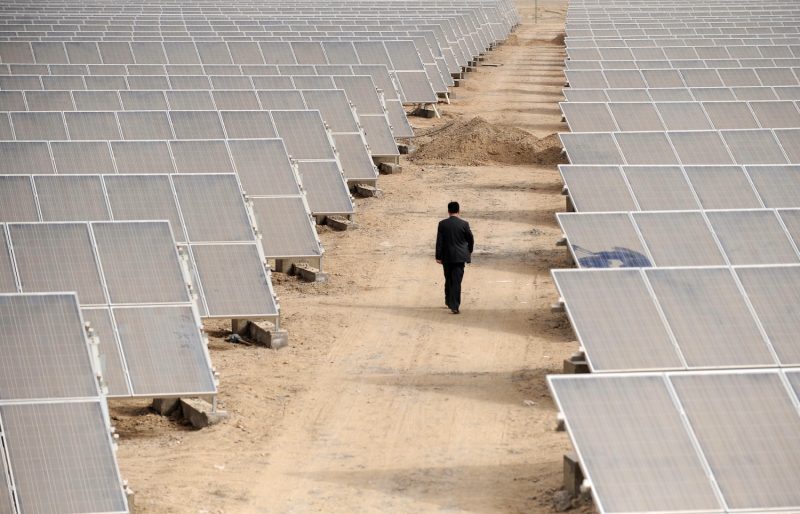A US ban on goods from China’s Xinjiang region came into effect on Tuesday, with the potential for damage to be inflicted on the Muslim-majority area’s solar power industry.
The ban came as US Secretary of State Antony Blinken said US allies would be asked to join in with their own restrictions on a region where Washington says China is committing genocide.
US Customs and Border Protection has begun enforcing the Uyghur Forced Labor Prevention Act (UFLPA), which President Joe Biden signed into law in December.
The US agency has said it is ready to implement the law’s “rebuttable presumption” that all goods from Xinjiang, where China established detention camps for Uyghurs and other Muslim groups, are made with forced labour unless it can be proven otherwise.
The agency has said a very high level of evidence would be required for importers to receive an exception to the law.
Xinjiang supplies the world with vital materials for solar panel production.
“Given that Xinjiang now produces around half of the world’s polysilicon, there are no easy options to address forced labour in solar energy supply chains,” Nikos Tsafos of US Center for Strategic and International Studies (CSIS) said.
Largest Exporter of Textiles, Apparel
The law has already had an effect on cotton producers in Xinjiang – the South China Morning Post reported that cotton farmers have 3 million tonnes of unsold inventory, which is a million tonnes more than it usually has at this time of year.
Xinjiang produces around a fifth of the world’s cotton and is the largest exporter of textiles and apparel, according to Amy Lehr of CSIS.
China denies any abuses in Xinjiang. Claims of forced labour were a “big lie concocted by anti-China forces”, the Foreign Ministry said.
“With this so-called law, the US is trying to create forced unemployment in Xinjiang and to push for the world to decouple with China,” it added.
Beijing initially denied the existence of any detention camps, but then later admitted it had set up “vocational training centres” necessary to curb what it said was terrorism, separatism and religious radicalism in Xinjiang.
- Reuters, with additional editing by George Russell
READ MORE:
CNPC Drills China’s Deepest Gas Well in Xinjiang – Xinhua
US Ready for Xinjiang Goods Ban: Customs Official
Tesla Criticised Over Showroom in China’s Xinjiang Region
























